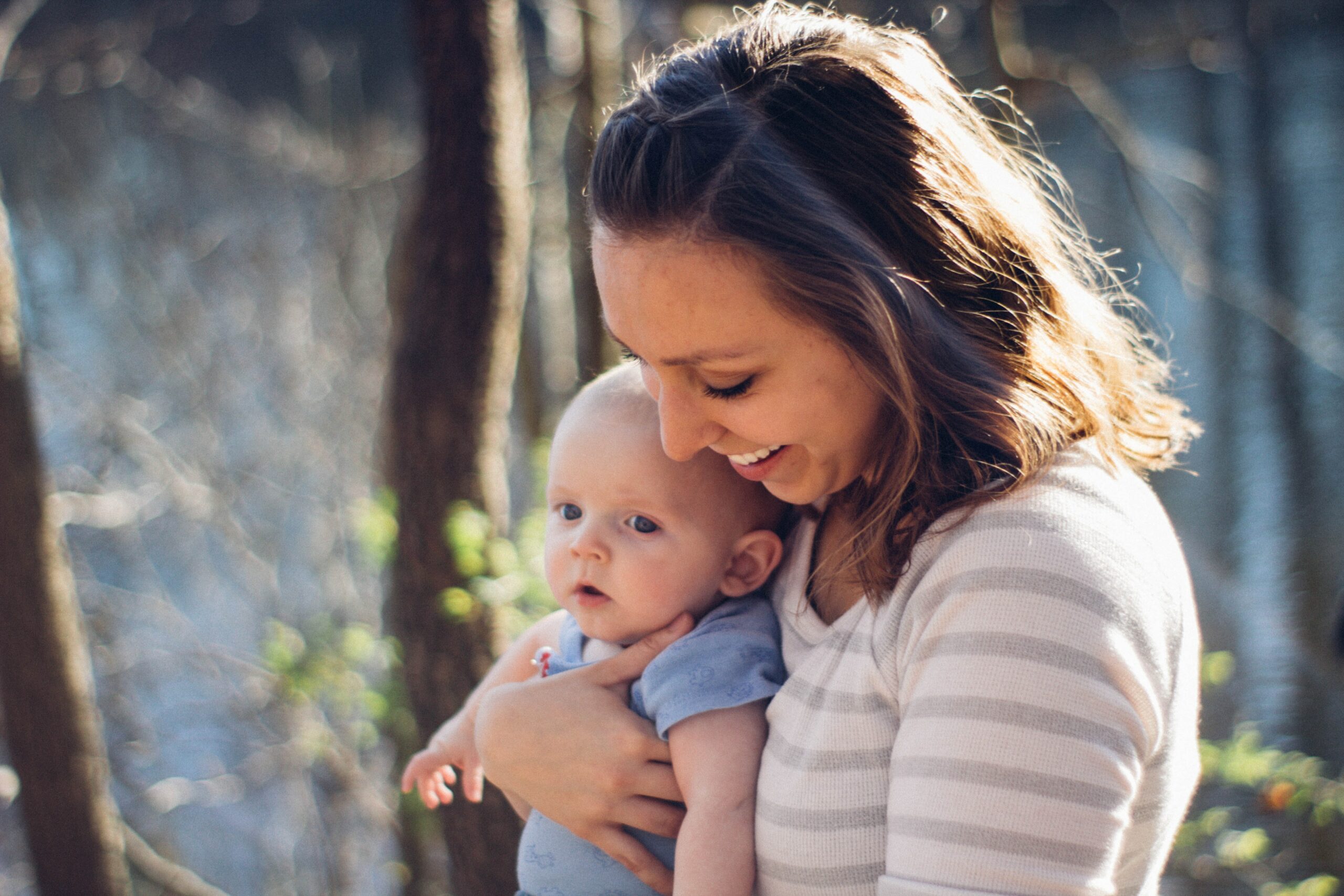For many, the first period after childbirth can feel new and different than what you were used to before pregnancy. Your body just went through a massive change, and your hormones are also changing. It’ll take some time for you to feel comfortable with your new cycle, so here are some tips to help you through. Also, keep in mind, postpartum recovery is physical and emotional, so remember to be patient and kind to yourself during this process.
When to expect your period
When your period returns has a lot to do with whether or not you’re breastfeeding. After you give birth, you continue to produce a hormone called prolactin which is how your milk glands are able to make milk. Higher levels of prolactin prevent your period, so if you’re breastfeeding or pumping every 2-3 hours around the clock, you’re not likely to get your period. The timeline looks different for everyone because it is affected by how often you nurse your baby, and how well your baby hopefully starts sleeping, leading to longer stretches between feedings. If you’re not breastfeeding exclusively, you can get your period (and get pregnant) as early as four to six weeks after giving birth.
How to know if you’re fertile after birth
The desire to become fertile again after pregnancy is, of course, different for everyone. Some are looking to add to their family sooner rather than later, while others may want to wait or not be open to another pregnancy in the future. As mentioned, if you’re exclusively breastfeeding on a round the clock regular basis, you’re not likely to be ovulating. This provides only short term contraception and is known as Lactational Amenorrhea Method (LAM) if three conditions are met. These include not having your period after birth, fully or nearly fully breastfeeding (every 3 hours), and if you’ve given birth less than 6 months ago. But as with any form of contraception, this isn’t a foolproof method and it is possible to have an unplanned pregnancy as you release an egg (ovulate) 2 weeks before you even see your period. If you’re not breastfeeding, you will start ovulating sooner. It’s normal not to want to be intimate in the weeks after birth, while others do want to. Barrier protection or hormonal options for preventing pregnancy are available. Don’t forget to book an appointment with your doctor to discuss family planning.
How your period may change
As you go through any experience including aging, stress, and pregnancy, your period may change. For some lucky menstruators, it’ll be better than it was before—less bloating, cramping—but it can also be heavier and more painful for others. Unfortunately, there’s no way to predict this but it should regulate itself over time. There are many reasons—both physically and emotionally—why your period could change after pregnancy. This is an overwhelming time and the stress can definitely impact your cycle, not to mention your uterus is returning to a smaller size and your changing hormone levels. It’s normal for your period to feel different than it did before.
Which period products are best
It’s time to go back to the drawing board. You may feel like you did when you got your period for the very first time, but it’s important to revisit all the period products available to you. The ones that worked for you before may not work for you now, and there might be a better option for you that you’d never considered! It’s recommended to wait at least six weeks before using any internal protection, so this is the time for pads (offered as both single-use or reusable) and/or period underwear. After this period, you can start exploring products for insertion, but be mindful that your flow and shape may have changed. A different product and the technique you use for insertion may warrant some adjustments. Your body may feel different due to changes in the pelvic floor. It is normal to feel there is some prolapse or weakening (your vagina feels different to the touch, or you still have a bit of urine leakage). Seeing a pelvic floor physiotherapist can help with your physical recovery. Be patient if this takes some time.
Menstrual cups and discs are a great way to monitor how much you’re bleeding. These products catch the blood instead of absorb it, and are made of 100% body-safe silicone instead of cotton. Newer products come in reusable, disposable, and even plant-based options (better for you and the planet). Again, what’s “normal” looks different for everyone. Your body has just gone through so many changes and it takes time for you to get used to this. If you have any questions or concerns, speak to your OBGYN, family doctor, or nurse practitioner.
Dr. Yolanda Kirkham is an OBGYN and menstrual health expert for Flex. After specialty training in Obstetrics and Gynecology through residency at the University of Toronto, she subspecialized in Pediatric and Adolescent Gynecology with a clinical fellowship at the Hospital for Sick Children. Dr. Kirkham provides clinical care at both Women’s College Hospital and St. Joseph’s Health Centre (Unity Health) in Toronto. She believes in arming and supporting patients with accurate health information to make smart, personalized treatment decisions.



 Follow Us On Instagram
Follow Us On Instagram
